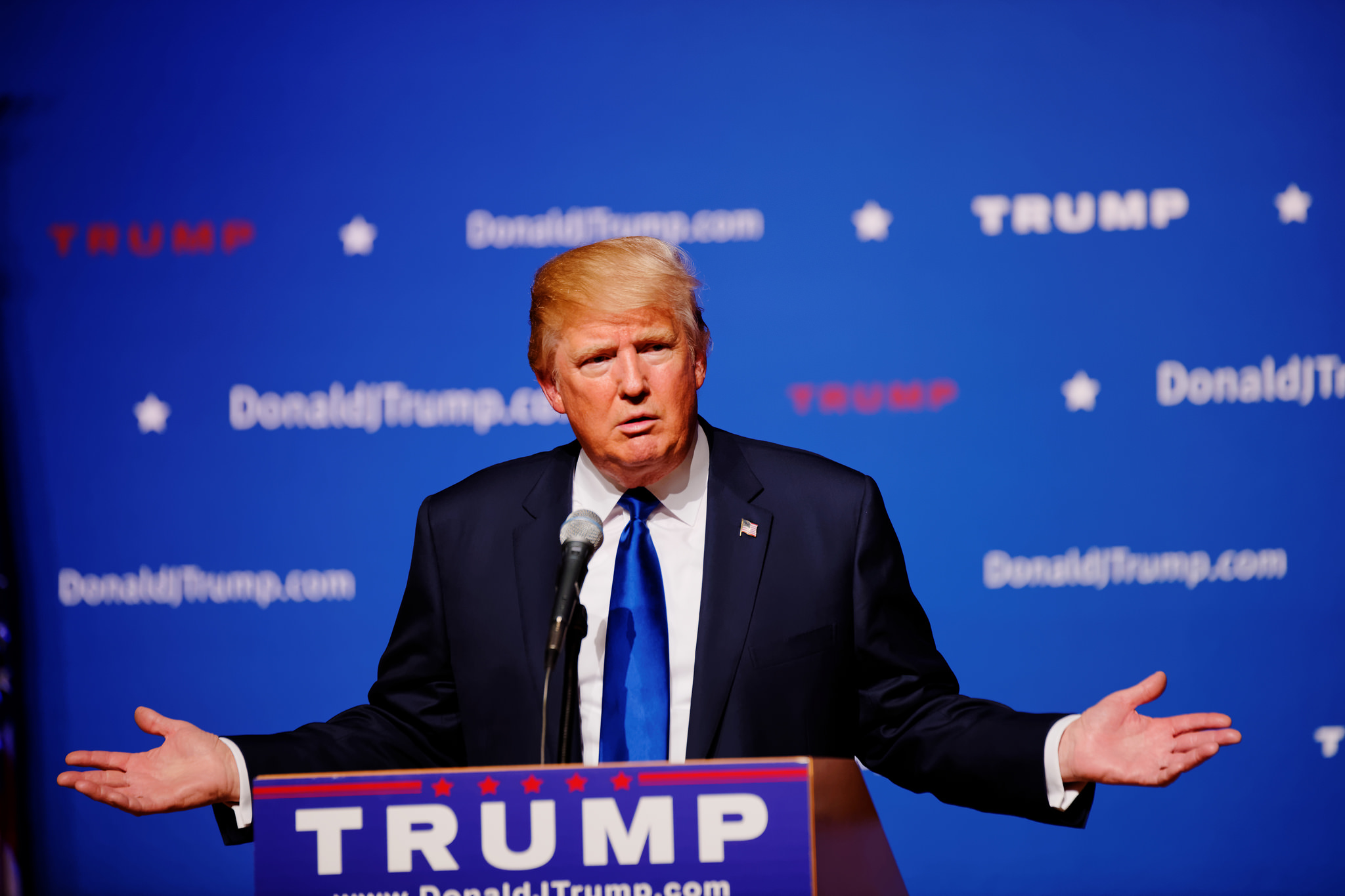
Donald Trump Could Be the Military-Industrial Complex’s Worst Nightmare
Let’s admit it. As political provocateur, Donald Trump has a dizzy kind of genius. He feints to the right, then he spins to the left. Either way, the hot subject for political chatter becomes Donald Trump.
This week, while people everywhere were fretting over his violent talk, the candidate came to Washington and dropped a peace bomb on the neocon editorial writers at The Washington Post and the war lobby. Trump wants to get the United States out of fighting other people’s wars. He thinks maybe NATO has outlived its usefulness. He asks why Americans are still paying for South Korea’s national defense. Or Germany’s or Saudi Arabia’s.
March 23, 2016 | Source: Alternet | by William Greider
Let’s admit it. As political provocateur, Donald Trump has a dizzy kind of genius. He feints to the right, then he spins to the left. Either way, the hot subject for political chatter becomes Donald Trump.
This week, while people everywhere were fretting over his violent talk, the candidate came to Washington and dropped a peace bomb on the neocon editorial writers at The Washington Post and the war lobby. Trump wants to get the United States out of fighting other people’s wars. He thinks maybe NATO has outlived its usefulness. He asks why Americans are still paying for South Korea’s national defense. Or Germany’s or Saudi Arabia’s.
“I do think it’s a different world today and I don’t think we should be nation-building anymore,” Trump said. “I think it’s proven not to work. And we have a different country than we did then. You know we have $19 trillion in debt. We’re sitting probably on a bubble, and, you know, it’s a bubble that if it breaks is going to be very nasty. And I just think we have to rebuild our country.”
Will anybody give him an amen? Yes, lots of folks. People who read The Nation (myself included) have been saying something similar for a long time. So have libertarian Republicans on the right. But this sort of thinking is mega-heresy among the political establishment of both parties. The foreign-policy operators consider themselves in charge of the “indispensable nation.”
This new Trump talk is definitely career-threatening for the military-industrial complex. It was particularly playful of Trump to choose The Washington Post as the place to drop his bomb; after all, it’s the Post that has made itself such a righteous preacher for endless war-making.
The Donald, usually bellicose in style and substance, is singing, “give peace a chance.” What does his detour portend for national policy? We can’t know for sure, since Trump also has a tendency to casually contradict himself before different audiences. Later on the same day, he addressed AIPAC’s convention and sounded a like a warrior for Zion. He got thunderous applause after making the ritual promises that candidates from both parties always make at AIPAC meetings.
But Trump has, in his usual unvarnished manner, kicked open the door to an important and fundamental foreign-policy debate. It is far more profound than the disputes we usually hear between hawks and doves. He’s proposing a radical standard for testing US policy abroad, both in war and peace: Is it actually in America’s interest? Or has US global strategy become a dangerous hangover from the glory years, when Washington armed and organized nations for the Cold War?
Whatever happened in past decades, Trump insists that this US ambition always to be in charge is now actively damaging our country, wasting scarce treasure and drawing us into other people’s conflicts. ThePost opinionators must have choked on his words.
“I watched as we built schools in Iraq and they’d be blown up,” Trump told the editors. “And we’d build another one and it would get blown up. And we would rebuild it three times. And yet we can’t build a school in Brooklyn.… at what point do you say hey, we have to take care of ourselves. So, you know, I know the outer world exists and I’ll be very cognizant of that but at the same time, our country is disintegrating, large sections of it, especially in the inner cities.”
